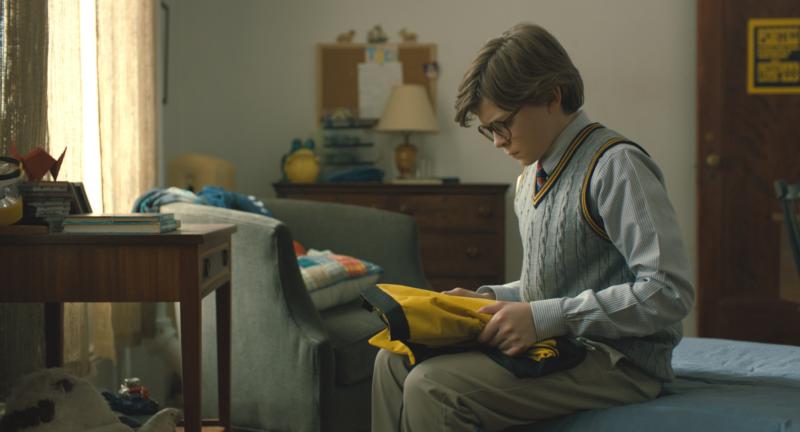NEW YORK (CNS) — A 17th-century Dutch masterpiece becomes a complex souvenir in the patchy drama “The Goldfinch” (Warner Bros./Amazon). Though initially intriguing, director John Crowley’s adaptation of Donna Tartt’s Pulitzer Prize-winning 2013 best-seller flags long before its taxing two-and-a-half-hour running time is spent.
Through most of the story, characters yearn to make up for past mistakes. Yet the film’s ultimate message can be said to be in tension with scriptural values since it suggests that good consequences can sometimes result from wrongdoing, though it leaves open the question whether people ought to count on such an outcome as an inducement to — or excuse for — transgressing moral norms.
[hotblock]
Art lovers will know that, in real-life, the image from which both book and movie take their titles, painted by Carel Fabritius in 1654, resides in Amsterdam’s Mauritshuis museum. For Tartt’s and screenwriter Peter Straughan’s purposes, however, it’s temporarily loaned to New York City’s Metropolitan Museum of Art.
There, sensitive, sophisticated teen Theo Decker (Oakes Fegley), who is wandering through the Met with his mom, is gazing at the small masterwork when an explosion takes place. Though the bombing claims his mother’s life, Theo survives and, for reasons only gradually made clear, in the chaos that immediately follows the attack, he rescues Fabritius’ picture from the rubble.
He goes on to conceal his possession of it for years.
Theo’s trauma eventually affects all those with whom he has sustained contact. They include Mrs. Barbour (Nicole Kidman), the matriarch of the wealthy family that takes him in, his lowlife dad, Larry (Luke Wilson), Hobie (Jeffrey Wright), the furniture restorer who becomes his mentor as well as Pippa (Aimee Laurence) and Ukrainian-born Boris (Finn Wolfhard), his two closest friends.
With his life still overshadowed by his loss, grown-up Theo (Ansel Elgort), now an antiques dealer in partnership with Hobie, reunites with Pippa (Ashleigh Cummings). But his enduring attraction to her complicates his engagement to Mrs. Barbour’s daughter, Kitsy (Willa Fitzgerald). Theo also reconnects with Boris (Aneurin Barnard), and the two pals become entangled in a web of intrigue surrounding the purloined painting.
At first, Crowley succeeds in sustaining interest by keeping viewers guessing. But about halfway through, “The Goldfinch” drifts into the doldrums and only perks up periodically thereafter.
Partly, the flat tone may be accounted for by Theo’s withdrawn, taciturn personality. Perhaps his interior life, more difficult to convey on screen than in print, makes better fodder for readers than for moviegoers. Additionally, he’s naturally easier to sympathize with as an orphaned teen than as the shady adult he becomes in the latter portions of Tartt’s tale.
[hotblock2]
In addition to the questionable philosophical conclusion embedded in the wrap-up, the narrative winks at young Theo and Boris’ swiping of items from a grocery store. Their drinking and drug taking are also shown to have no considerable consequences. As for mature Theo, it’s taken for granted that he and Kitsy have shacked up on their way to the altar.
Though it’s never explicitly stated, the script unmistakably implies that Hobie and his former business partner also were living together as a couple. As for an emotionally charged scene in which Boris kisses Theo on the mouth, the meaning of the gesture is kept ambivalent by the fact that Boris’ liking for girls has already been established. At any rate, his relationship with Theo thereafter remains strictly one of friendship.
The film contains a suicide theme, brief physical child abuse, cohabitation, benignly viewed shoplifting, underage narcotics use, drinking and smoking, an implied homosexual relationship, several profanities and numerous rough and crude terms. The Catholic News Service classification is A-III — adults. The Motion Picture Association of America rating is R — restricted. Under 17 requires accompanying parent or adult guardian.
PREVIOUS: At Washington exhibit, the toll of the immigrant journey becomes art
NEXT: ‘It: Chapter Two’: Almost 3 hours of creepy horror




Share this story